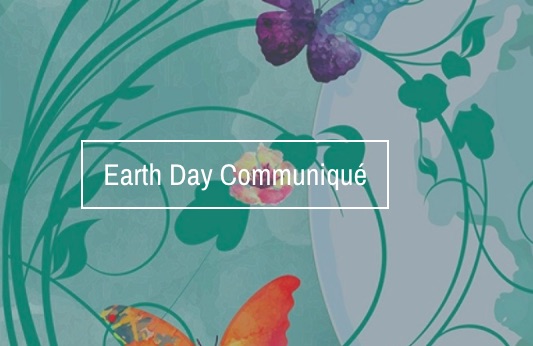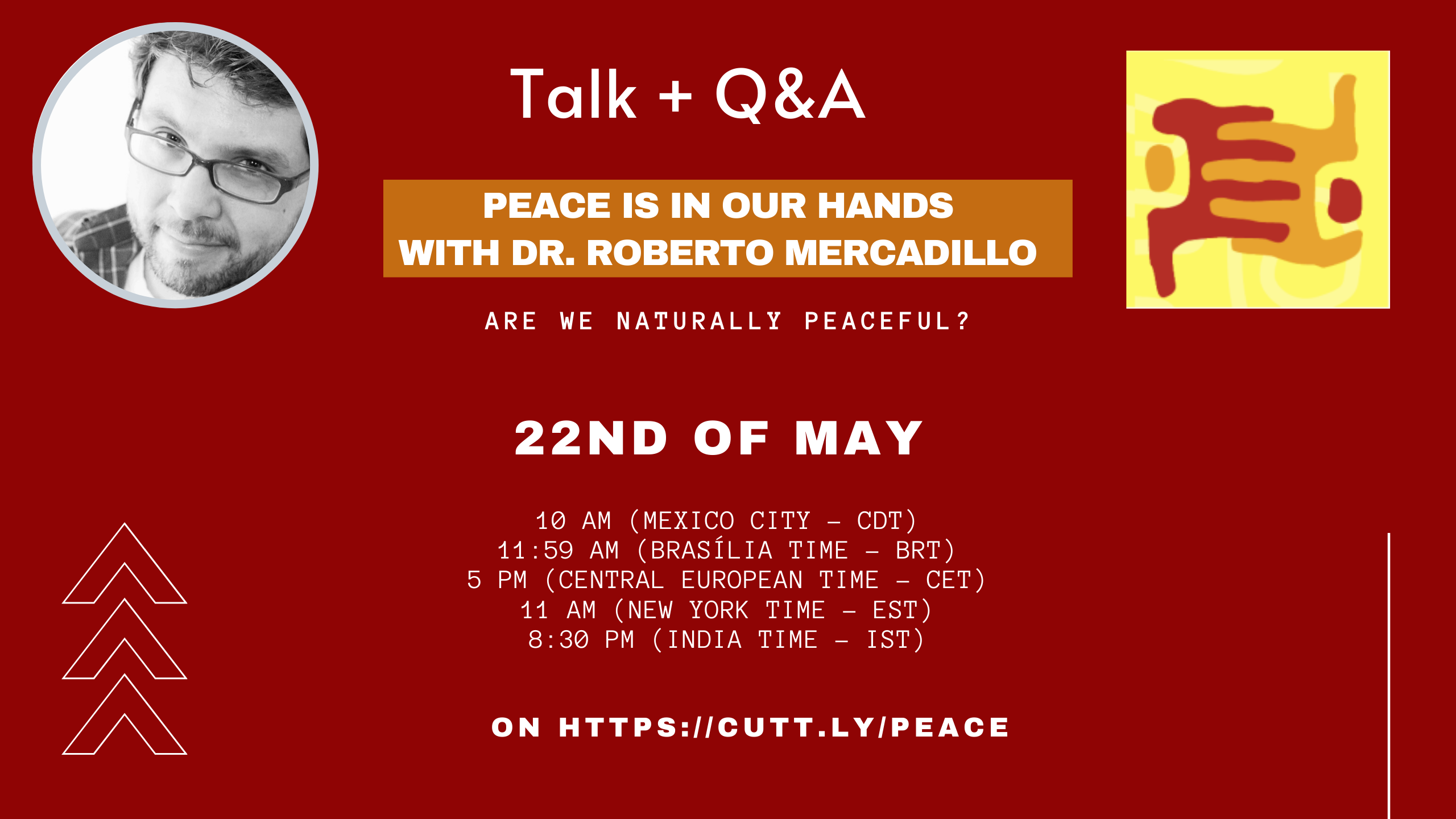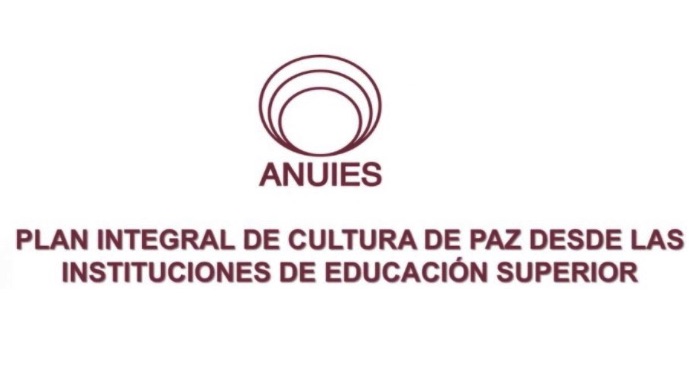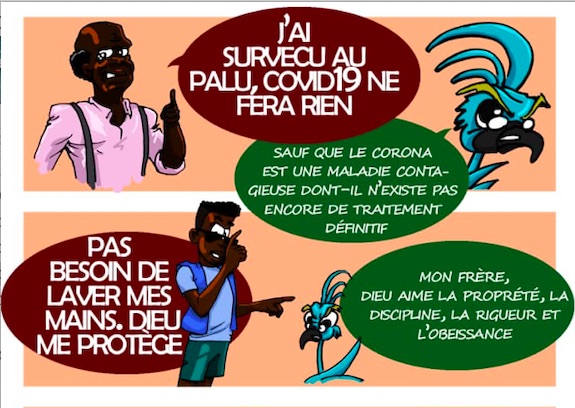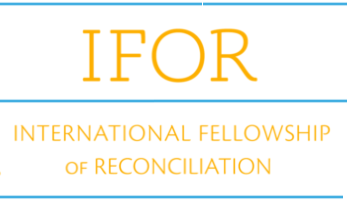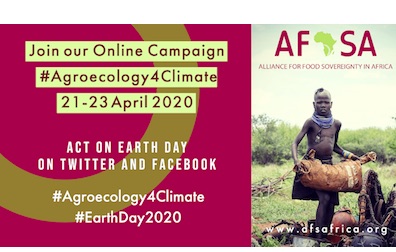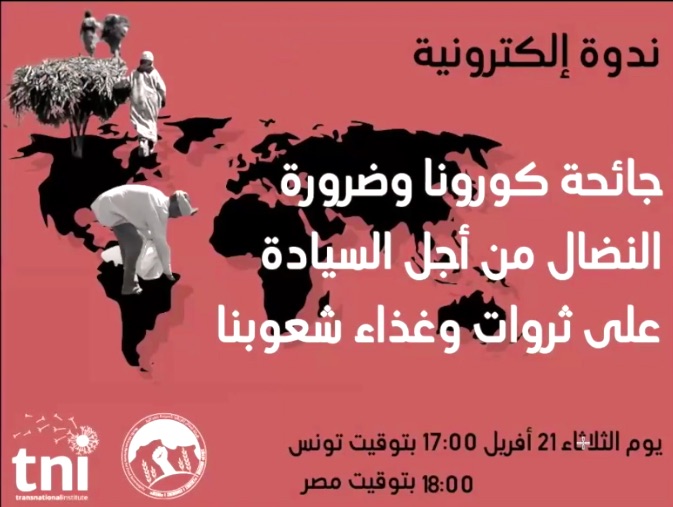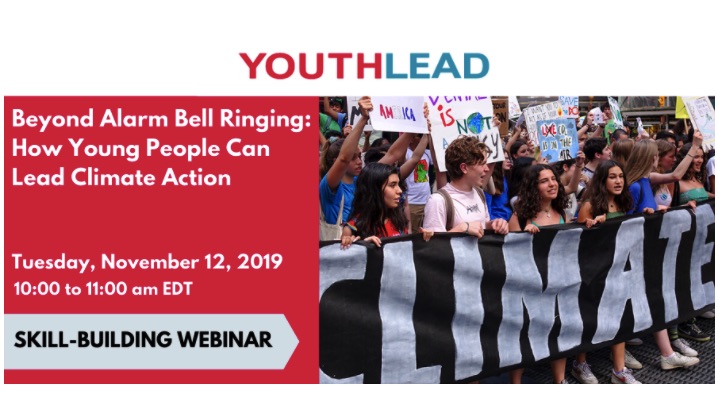. . SUSTAINABLE DEVELOPMENT . .
An article from the People’s Coalition on Food Sovereignty
The People’s Coalition on Food Sovereignty (see below) has formulated the following nine demands for food and rights that represent the aspirations of rural food producers to feed the world and pave the way for a just, equitable, and sustainable food system that guarantees the peoples’ right to food. This is the popular version of our policy recommendations to ensure people’s right to food amid the COVID-19 pandemic.
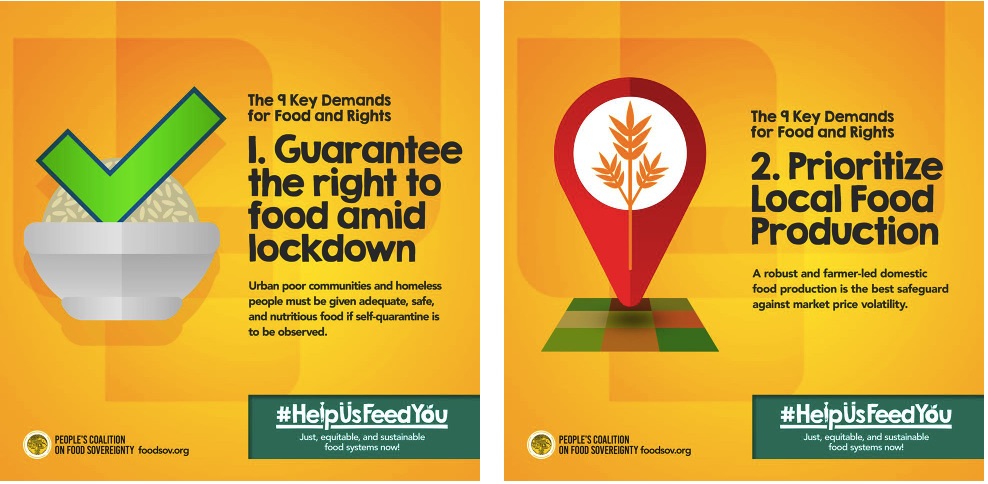
DEMAND 1: Guarantee the right to food amid lockdown
A global hunger crisis looms unless states guarantee people’s right to food.
The number of people suffering from extreme hunger worldwide is expected to double due to the pandemic.
Last year, 130 million were in acute hunger. This will spike to 265 million by the end of 2020 if people’s right to food remains to be neglected.
Prior pandemic, more than 820 million people – one in every nine in the world – are already hungry. On the other hand, over 2 billion people – one in every four – do not have regular access to safe, nutritious and sufficient food.
These numbers are also expected to rise due to movement restrictions imposed to curb the coronavirus spread. The poor and the homeless are extremely vulnerable.
States therefore have a crucial role in ensuring that people have access to adequate, safe, and nutritious food at all times, as mandated by the United Nations Committee on Economic, Social and Cultural Rights. States “have a core obligation to take the necessary action to mitigate and alleviate hunger even in times of natural or other disasters.”
DEMAND 2: Prioritize local food production
Promoting local food production is key in any nation’s food security.
A robust and farmer-led domestic food production is the best safeguard against market shocks and price volatility.
A total of 14 countries have imposed export bans on 20 variants of foodstuffs to prioritize local markets amid the global pandemic. Poor countries which rely on food imports are struggling to keep up with the building food shortage.
Rice, a major food-crop especially in Asia, have hit a seven-year high price as major rice exporters Vietnam and Cambodia decided to ban their export of the food staple to ensure local supply.
Staple food crops must be prioritized in local food production in order to shield the economy from fluctuations in the global market. Subsidies and investments for inputs (eg. seeds and fertilizers), irrigation, soil conservation, and other subsidies should be broadened and given directly to small food producers.
Imports of staple food crops that countries can grow domestically must be progressively reduced to shield both producers and consumers from global market shocks.
In order to sustainably meet the demand for food, states must utilize and further develop their pool of smallholder farmers, fisherfolk, agricultural workers, and other food producers who are within the communities vulnerable to the impacts of COVID-19. Staple food crops that can be grown domestically should be encouraged by the governments through subsidies to reduce the dependency on importation.
DEMAND 3: Recognize and extend support to farmers as essential workers
Farmers and rural peoples are at the frontlines of producing food for the world. They are essential workers and should be recognized and supported as such.
The food in our tables, in grocery aisles, in markets and restaurants, come from the hands of landless and smallholder farmers, farmworkers, fisherfolk, agricultural workers in plantations, rural women and youth, indigenous peoples, Dalits and pastoralists. Without them, food supply will be decimated.
Ironically, they are the most vulnerable in this pandemic. Prior the pandemic, the rural sectors already suffer from extreme poverty. 80% of 736 million people in extreme poverty – subsisting on less than USD 1.90 a day – live in rural areas, where social services including healthcare are also often inaccessible.
States must ensure that they are given adequate support in form of unconditional cash assistance, social protection, and production aid as essential workers. This will not only ensure domestic food supply but also cushion the impact of the pandemic to the already at-risk communities.
However, some state measures to contain the pandemic have resulted in their loss of income and livelihood. Movement restrictions to enforce social distancing have prevented rural peoples to access their production areas – be it farms or seas – while others are forced to throw away their harvest that cannot be transported and sold to urban areas. Policies that curtail their right to produce and displace them from their areas of production should be discontinued immediately.
The recognition, support, and protection of farmers and rural peoples as essential workers amid the pandemic is a necessary guarantee to domestic food security.
DEMAND 4: Set up and support local markets
The disconnect between food supply and demand has never been this huge.
While almost a billion people around the world sleep hungry at night, tons of food are wasted across fields caused by transportation and market bottlenecks. Every year, a third of the world’s food – amounting to as much as USD 1.2 trillion – is lost or goes to waste. With today’s pandemic, lockdowns and supply chain failures have put this problem into overdrive.
This has caused avoidable price fluctuations and increased unevenness in access to food despite record high global grain output.
Countries can address this by setting up and backing decentralized local markets led by food producers. Not only does it bridge the gap between domestic food producers and consumers, but it also avoids wastage of food that are not able to reach markets. Farmers are able to sell their produce and earn while consumers are assured supply of and access to safe, healthy, and nutritious food.
States should give utmost support to local markets led by food producers and create frictionless links with urban and peri-urban consumers.
DEMAND 5: Strengthen strategic national reserves
The right to food also means it should be affordable.
Countries should strengthen strategic national grain and food reserves to support stable prices.
With lockdowns in place to curb the spread of COVID-19, countries are scrambling to have a stable supply of and access to staple food for domestic consumption.
Since its inception, the WTO impositions discouraged the “costly” public food reserves to prioritize trade commitments. Subsequent programs from the IMF-WB and other IFIs have pushed to dismantle and/or privatize national food agencies to liberalize trade.
While the WB in 2009 admitted that this has proven detrimental to poor and developing countries, the damage has been done.
Today, net food importing countries are left vulnerable to the volatility of global food prices.
Disruptions in the global food supply chain also prompted food price hikes of 5% to 9% average since February. Staple food crops, especially in the Global South, are also no exception – rice, grains, wheat, and flour have a rising price trend since January.
To deal with this, states must establish and/or strengthen substantially their strategic national reserves to ensure price control, notwithstanding the WTO commitments to ensure that vulnerable countries have the range of policy measures against market shocks. Priority should be given at all times to locally produced food for buffer stocks. Privatized grain buffer stock must be nationalized to protect public interest in food security.
States can also establish and/or strengthen national food purchasing agencies to ensure fair farmgate prices while stabilizing consumer prices.
DEMAND 6: Review and revise national land use policies
After the toiling farmers and rural people, land is the most important asset for food security.
National land use policies must be reconsidered to reflect the increasing need for domestic food production.
For so long, local elites and corporations dispossess rural peoples of land through privatization of public and customary lands, deceptive lease-type schemes and financing programs.
(Article continued on right side of page)
Question for this article:
What is the relation between movements for food sovereignty and the global movement for a culture of peace?
How can we work together to overcome this medical and economic crisis?
Are economic sanctions a violation of human rights?
(article continued from left side of page)
World Bank’s market-assisted land reform programs have only accelerated this. The rapid expansion of large-scale industrial farming has despoiled the Global South as rural communities are robbed of their right to food with the push of the World Bank for industrial agriculture for what they deemed as food security.
Several governments in the Global South are quick in opening up millions of agricultural land as collateral for loans. Underdeveloped countries are seen as production hubs for the increasing demand for biofuel as well as monocultures of sugar, palm oil, cotton, and maize. Much of the arable land once dedicated to local food production have been converted to export crop production under the liberalized economy. This caused poverty among millions who relied on these lands as they are displaced, forced into cheap labor, and repressed.
In the past 20 years alone, land sold and leased to foreign and domestic investors has reached a total of 160.77 million hectares. Ironically, only 8% of these are for domestic food production.
Unsurprisingly, these countries that have become import-dependent and export-oriented with the guidance of the World Trade Organization and World Bank have also the highest number of poor and hungry.
In these times when the world is threatened by COVID-19, the role of foreign agribusiness and large-scale export crop production in undermining food security is exceptionally apparent. With supply chain bottlenecks and trade barriers going up, farmers in high-value for-export crops are experiencing loss in livelihood. Subsidy allotted to export production should be realigned to support food crop production for the domestic market while introducing a moratorium for biofuel production and other non-food crops.
DEMAND 7: Provide unconditional food and cash aid
An estimated 265 million people will be in extreme hunger this year amid the current crisis – double of that from last year. They represent the most vulnerable among the 2 billion people in the planet experiencing food insecurity.
Immediate food aid must be provided to countries most at-risk of food supply shortage, including access to institutional support from the Organization for Economic Co-operation and Development (OECD) countries and South-South Cooperation mechanisms without conditions.
Africa (73 million people) and Asia (43 million people) are home to world’s most hungry. In particular, West Asia and North Africa (WANA) experience worsening famine as conflicts and protracted crises aggravated over the years. Conflicts have disrupted food and livestock production as well as access to food across the region. The pandemic only exacerbates the fragility of the war-ravaged countries like Libya and Yemen as they lack resources to contain the virus while Iran and Turkey have the highest acceleration of cases with tens and thousands of affected.
Over the years, humanitarian funding has dropped significantly. In fact, in 2018, it fell by 77% in crisis-affected countries. In context, COVID-19 affects many more countries in comparison to the past Ebola crisis. Overseas military spending of OECD countries have increased while humanitarian food aid has declined.
In order to curb the effects of the pandemic in the most affected regions, funding for food and cash aid must be prioritized in the Official Development Assistance in the form of grants, especially using the undelivered ODA fund (estimated to be around US$2 trillion) by donor countries over the last decade.
Donor countries must not take advantage of the deplorable situation and further deteriorate economies through neoliberal policy reforms that has caused poverty in these countries in the first place.
Conditionalities must be decoupled from aid to truly remedy the impacts of the crisis while strengthening the food and health systems, and not further chain the Global South by undermining public resources to creditors.
Although domestic needs must be prioritized, food export restrictions for humanitarian purposes must be dismantled.
DEMAND 8: Lift sanctions and cease all military aggressions
International sanctions that include food and agriculture trade are war crimes. Moreover, blanket economic sanctions decimate nation’s livelihoods and developing countries’ international trade relations.
Countries like Sudan, Zimbabwe, Iran, Syria, the Democratic People’s Republic of Korea are suffering from sanctions initiated and backed by US and its G20 allies – severely limiting their policy options in facing a pandemic like the coronavirus.
In Venezuela and Bolivia, the US tried to put into power political allies using sanctions that created shortages and economic restrictions that the population suffered through within the script of the Hybrid War.
The economic and financial embargo imposed by the US against Cuba has impeded export of goods and services, procurement of resources, and trade since 1958. In particular, food trade, access to medicine and medical supplies, and exchange of scientific knowledge were greatly restricted, impacting the Cuban peoples for many decades.
Lifting these sanctions, especially today, is a humanitarian imperative and can potentially save countless lives.
People in extreme hunger heavily concentrate in Africa and Asia, specifically in Sub-Saharan Africa, South Asia and West Asia. Around 65% of them are in 10 countries – Yemen (15.9M), Democratic Republic of Congo (15.6M), Afghanistan (11.3M), Venezuela (9.3M), Ethiopia (8M), South Sudan (7M), Syria (6.6M), Sudan (5.9M), Northern Nigeria (5M), and Haiti (3.7M).
Most of these countries, including Palestine, are ravaged by a combination of wars of aggression, internal conflict, and sanctions-induced famines.
Yemen alone, is made a victim of man-made starvation as Red Sea ports have been subject to recurring blockades, searches, and restrictions by Saudi-led coalition forces, essentially cutting the lines for imported food supplies.
War and conflict refugees and internally displaced people in many regions hung on a knife’s edge as occupying forces continue to advance despite a global call for ceasefire. Some 160,000 Kurds found themselves as refugees as US abandoned the fight against ISIS, go-signalling Turkish troops to lay siege on war-afflicted Syria.
The US supplies Israel USD 142.3B in bilateral assistance and missile defense vying for the control of West Asia. Zionist Israel continues its attacks against Palestinians who also suffer from the 10-year blockade from Israel and Egypt.
Ending all military aggression and the immediate lifting of sanctions, especially on international trade in food and agriculture, should be part of the global humanitarian response to combat COVID-19.
DEMAND 9: Increase transparency and accountability
To truly address the serious public health crisis of rising food insecurity amid the COVID-19 pandemic, a human rights-based approach that will empower the hungry to fulfill their right to food should be adopted. The approach takes the principles of transparency, accountability, non–discrimination, equality and equity, rule of law and good governance.
States and public officials must be put accountable in addressing the urgent needs of the people amid the COVID-19 crisis. States are responsible in engineering appropriate plans and national goals to ‘flatten the curve’ and recover from the impacts of the pandemic. Participation of vulnerable sectors especially the rural poor, rural women, and indigenous peoples in crafting emergency response, relief, and rehabilitation should be guaranteed. Non-deliverance on that responsibility demands recourse from the people due to infringement of the fundamental rights to food and health.
Transparency and anti-corruption measures must be put into place alongside fast-tracked aid and relief programs to ensure the disbursement of funds for those in urgent need. Contracts must be made public to mitigate risks of overpricing, monopoly, and collusion.
Stringent policies should be placed against commercial activities that lead to price-gouging, hoarding, or the impediment of people’s right to food. To protect consumers, antitrust and similar laws need to work to ensure no single entity can dictate prices and control stocks of essential goods such as PPEs and food. Other than scammers and hoarders, price increase of high-demand goods can also be caused by disrupted supply chains, scarcity, or the underdeveloped capacity to produce essential goods. States need to prioritize providing supplies and facilities for frontliners, essential establishments and agencies, and poor communities and low-income individuals.
Tighter corporate control and accountability should be enacted to ensure that they are in line with the broader goals of food security and social justice. Agriculture, for instance, needs to be reexamined and refocused on domestic food production in comparison to the industrial agribusinesses that has deteriorated the environment and impoverished rural communities for decades, leaving them hungry and highly susceptible to infection.
* * * * *
The People’s Coalition on Food Sovereignty is a growing network of various grassroots groups of small food producers particularly of peasant-farmer organizations and their support NGOs, working towards a People’s Convention on Food Sovereignty. It was established first as an Asian component of the global agri-trade network on People’s Food Sovereignty in 2001 then eventually resulted in the collaboration of those involved in the People’s Caravan 2004 process and those who participated in the Asia Pacific People’s Convention on Food Sovereignty in Dhaka, Bangladesh in November 2004. . . . During the People’s Convention in Dhaka, the name “People’s Coalition on Food Sovereignty” was adopted due to the growing number of organisations beyond Asia who have been involved in the Food Sovereignty platform.
